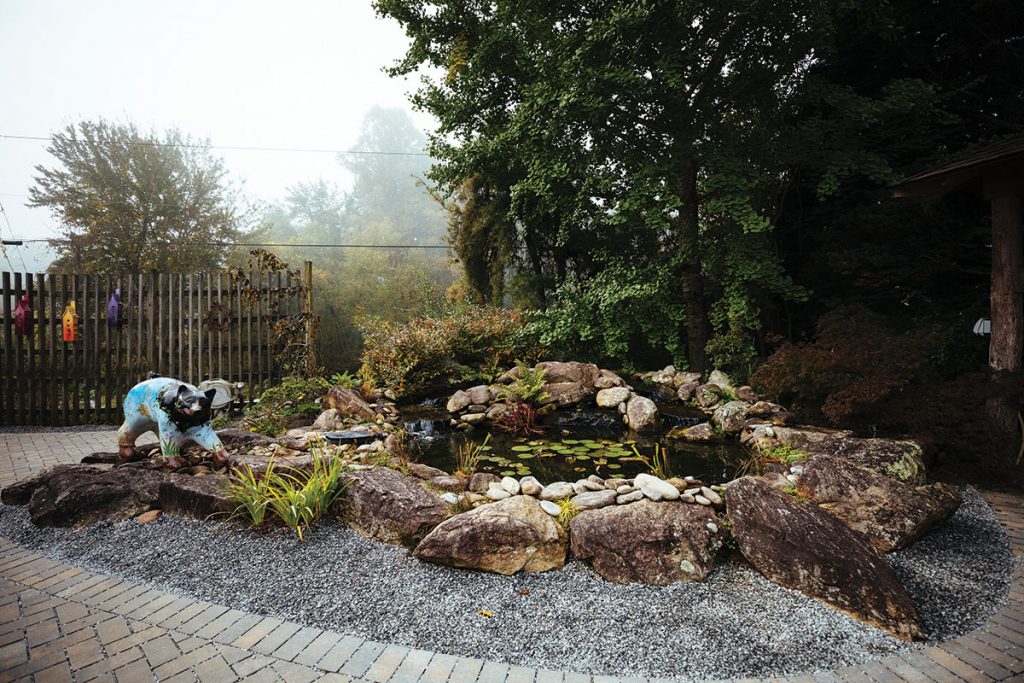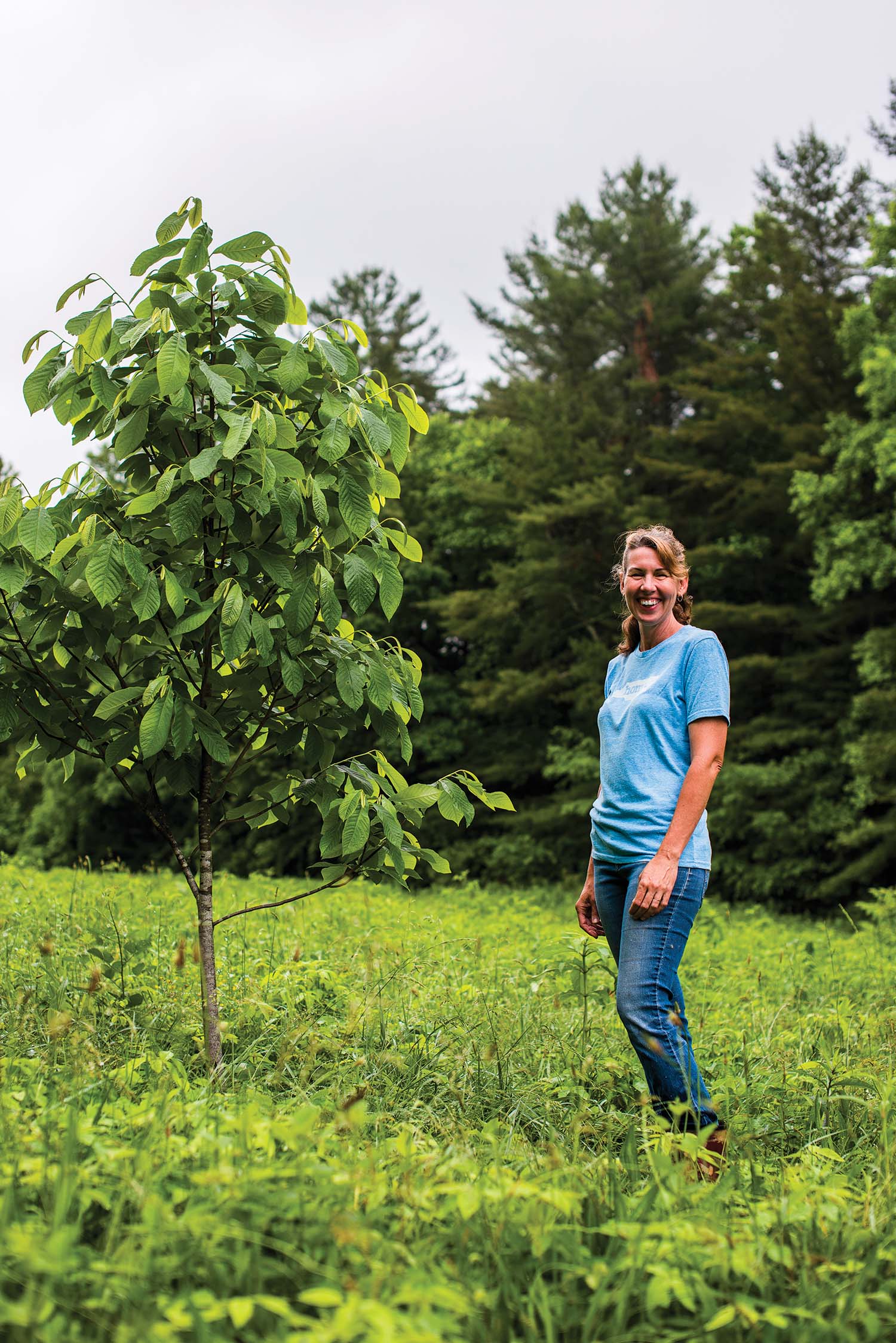
“In the gardens, they’re in charge.”
Students in Bullington Gardens’ BOOST program: l-r, Juana Carbajal, Matt Dolan, and Courtney Means.
Its motto “A Garden with Heart” doesn’t do Bullington Gardens justice. No SAT score could measure the impact its therapeutic gardening programs have on area teens.
Last month, high-school students in need of outside-the-box education ended the school year by celebrating a successful learning season at the public gardens in Hendersonville. About 64 young adults, many who face a lifetime of challenges, among them developmental and physical, learned about horticulture and work skills the fun way: by digging in dirt.
The parents of North Henderson High School student Christopher Sharp beamed on the sidelines as their son earned an MVP award for his budding gardening abilities and versatility. He even talked to the media: a surprise to his mother.
“We thought it would turn out well,” Sharp, 17, says of his team’s garden. “We can do an internship the second semester of our 11th-grade year.”
His mom, Chrystie, followed up: “What he’s learned here, he’s come home and used and has done in our own garden.”
John Murphy, who runs the BOOST (Bullington Onsite Occupational Student Training) program, says Christopher’s outcome is the goal — to teach students skills they can use beyond the fence line.
“The BOOST program is about work,” Murphy says. “It gives students basic work-related skills that help them find a job later.”
BOOST, an outgrowth of Bullington’s therapeutic outreach for youth, helps Henderson County schools meet Occupational Course of Study (OCS) requirements. Learners on this track need 900 work-related hours to earn their OCS diploma. Generally, OCS courses cater to students who need exceptional education opportunities, not merely conventional ones, says Coach Walter Fletcher of West Henderson High School, now in his seventh year as a teacher sponsor.
“This teaches the kids a lot,” Fletcher says. “Sometimes they learn the best outside of the classroom. In the gardens, they’re in charge.”
Last month’s celebration — part awards ceremony, part garden tour, part field day — drew scores of students from all four Henderson County public high schools. Each school’s BOOST team is challenged to grow flower gardens from seed on 12-by-4-ft. plots. They study, research, design, and cost out their gardens to learn transferable skills for future jobs. In weekly visits, they must execute the gardens on a budget of $45. Each garden has a theme.
“One idea was Minions,” says Murphy, who launched BOOST in 2003. The theme grew from the popular movie Despicable Me and the cute animated sidekicks. “A student wanted to paint Styrofoam balls yellow and black. Well, that’s not a garden.”
But it is the seed of an idea, he says, no pun intended. Students are allowed to use natural features in their designs, such as rocks, stone water bowls, and trellises made of sticks and twigs. The award-winning garden of the season included a bee house, resembling a birdhouse, to attract Mason bees and divert their burrowing from houses. Another garden this year, based on The Hunger Games, featured sticks formed into a bow and arrow, the weapon of choice of the series’ protagonist Katniss Everdeen. Chelsea Frazier, 15, of West Henderson High School worked on it.
“I love to garden. I love working with plants and animals,” she says, just before winners are announced. “I’m kinda nervous because I don’t know who won. Nobody knows, and it’s all kinda nerve-wracking.”
Along with the competition, students do many jobs on the grounds, such as spreading mulch, maintaining nature trails, mowing, chipping, and shredding. They leave with an understanding of the work it takes to maintain a garden and the tools necessary to work it. NC Cooperative Extension and Henderson County Education Foundation contribute to the program’s support, with help from the local director for exceptional children, Lynn Metcalf.
“They do a great job out here,” Metcalf, in her first year, says. “I didn’t realize how much they did with the kids out here. I’m very impressed.”
In some cases, the advancements in a student are significant, yet all participants receive recognition for their work: a certificate or a potted plant. Definitely pats on the back and high fives. Once the program is over, teachers gauge the impact on each student’s progress.
“The teachers look at it because they know the ability levels of each student,” Metcalf says, “and they see the growth and gauge it based on the growth, whether it be social, whether it be work ethic. I mean, there are so many factors that are built in.”



